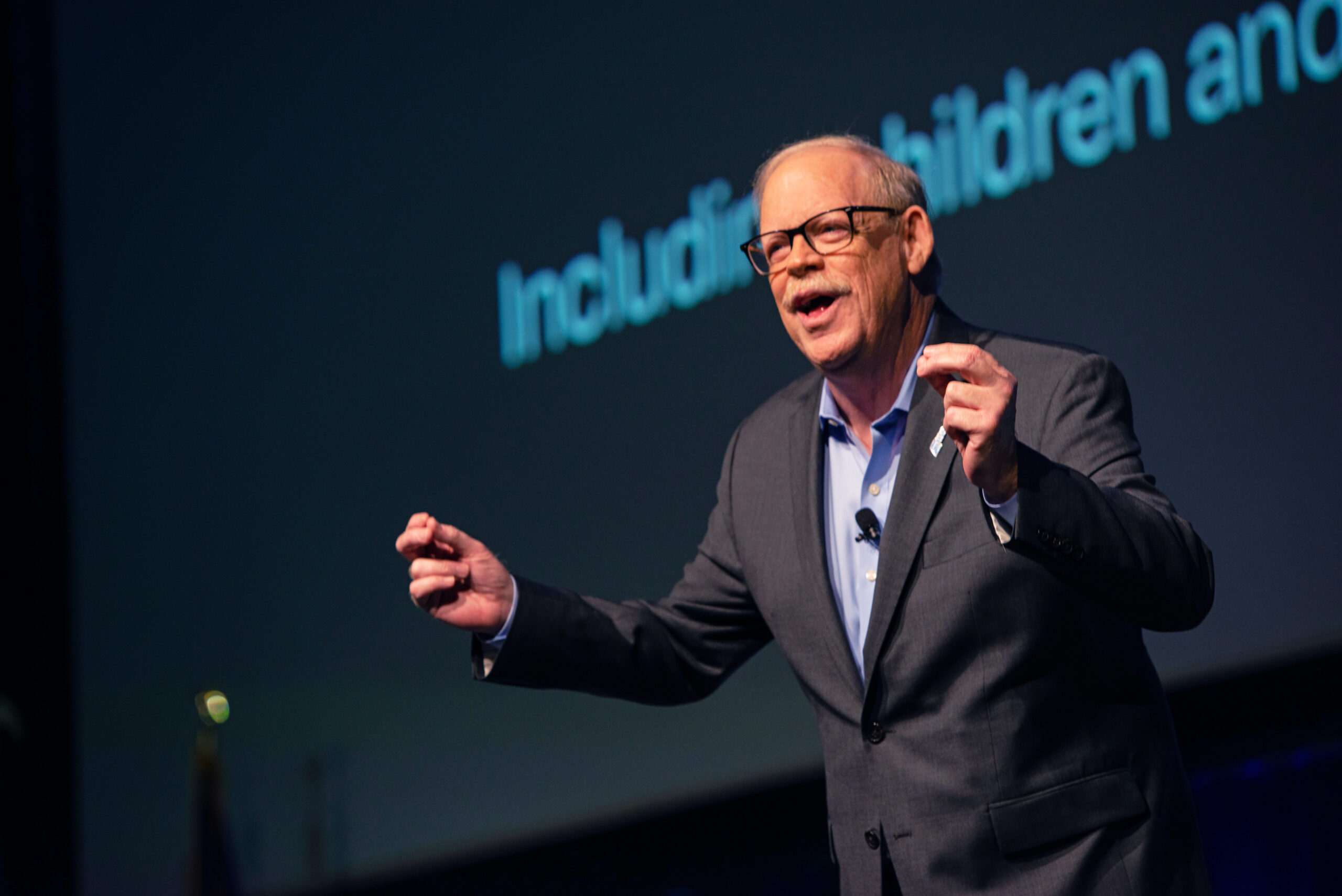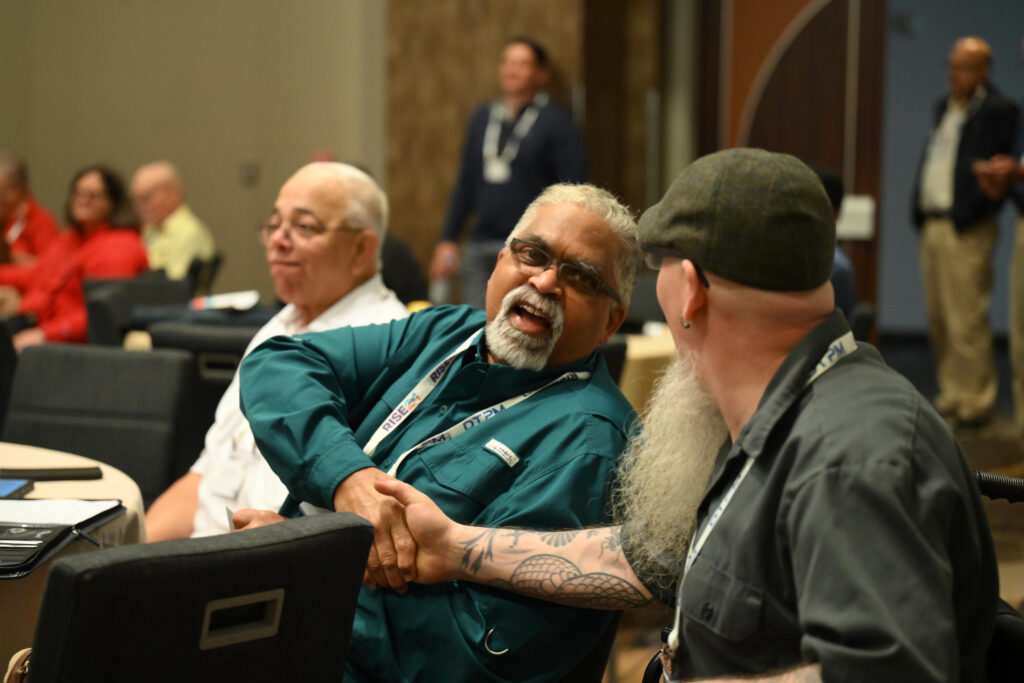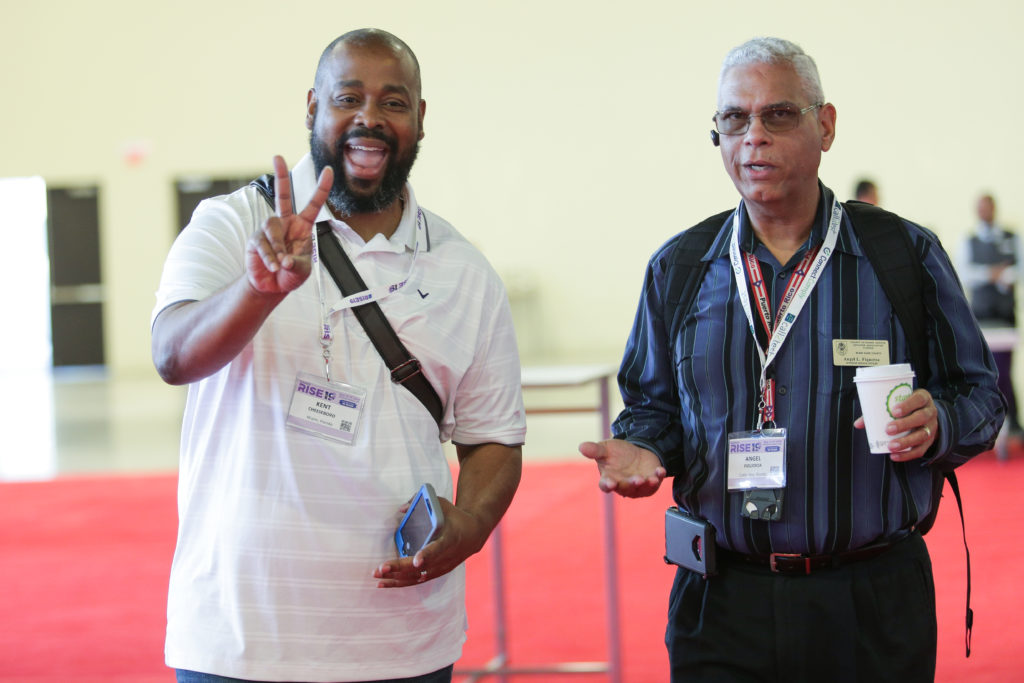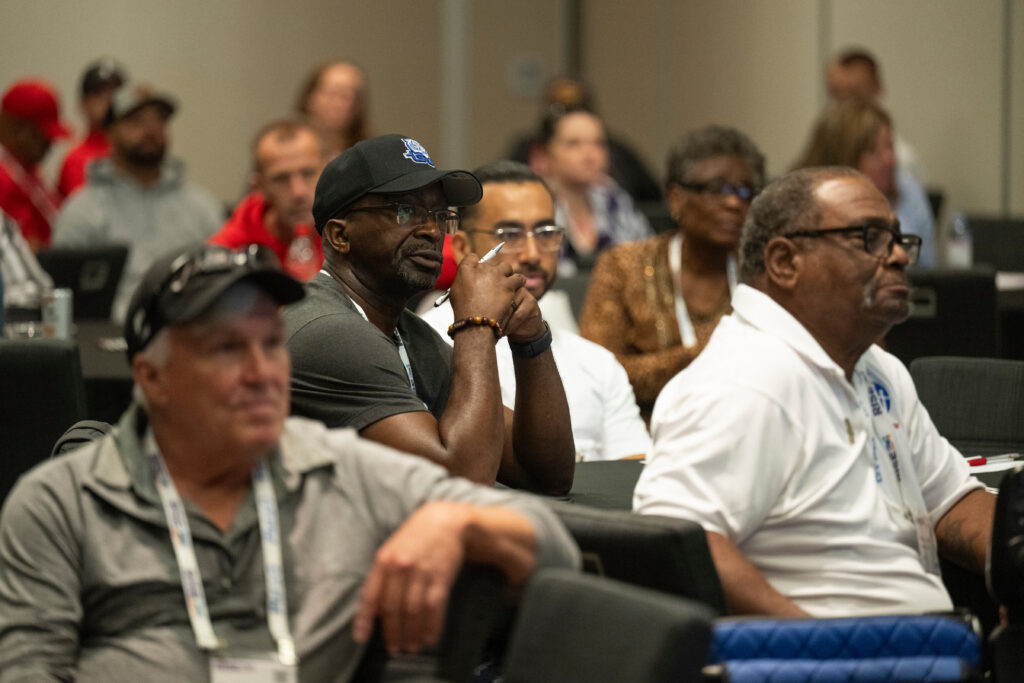RISE23 RECAP
All Rise Launches in Front of Massive RISE Crowd
Seven thousand public health and public safety leaders were on hand for the opening general session of RISE23 and the announcement of NADCP’s rebrand to All Rise. The morning kicked off with a powerful series of videos narrated by All Rise Ambassador and treatment court champion Martin Sheen.
“The challenges we will face are vast. That same spark that created this movement nearly 30 years ago still burns bright today,” he said as images of treatment court success flashed on screen. “We will not stop until communities everywhere recognize that true justice is served when people with substance use and mental health disorders have access to effective treatment and thriving recovery. And when we do that together…we All Rise.”
All Rise Chief Executive Officer Carson Fox took the stage to speak with attendees about this monumental transition. “All Rise has always been at the heart of our identity,” he said. “We believe that no entity is better positioned to lead the next generation of justice evolution than All Rise, and All Rise is all of you.”

The transition to All Rise was on display throughout RISE23. Attendees were immersed in banners and signs highlighting All Rise and its divisions. All Rise was reflected in the program as well, with over 250 sessions devoted to critical issues in treatment courts and broader topics related to serving unhoused people, alumni, children and families, and other key issues at the intersection of public health and public safety.
Bureau of Justice Assistance (BJA) Director Karhlton Moore Expresses Support for Treatment Courts and All Rise
Speaking to RISE attendees for the second year in a row, Director Moore shared his excitement about the future of All Rise and BJA’s continued support for treatment courts.
“Last year, BJA funded treatment courts in 95 different communities totaling 67 million dollars,” he said. “While we are here, there are people in communities all across the country anxiously awaiting your return. You will play a key role in their journey of transformation, and when you do that, make no mistake, you will change the world.”
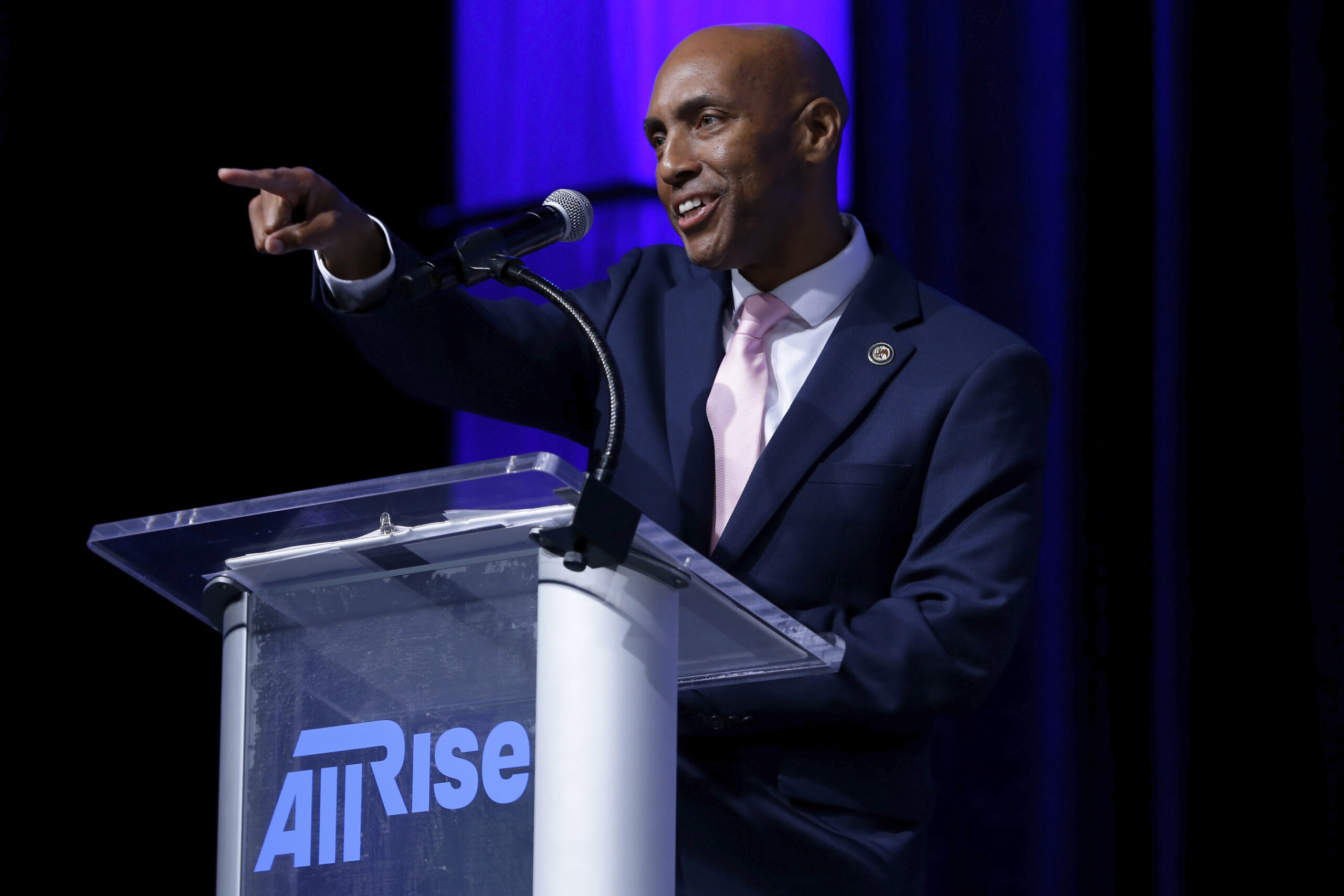
All Rise Signs MOU With National Treatment Court Alumni Association
Last year, RISE22 culminated by announcing the establishment of the National Treatment Court Alumni Association (NTCAA). This year, RISE23 featured the signing of a memorandum of understanding between All Rise and the NTCAA. NTCAA vice chair and All Rise board member Abby Frutchey led things off saying, “Our mission at NTCAA is to support treatment courts and alumni across the country to develop and sustain alumni groups and connection. We’re very honored to sign a memorandum of understanding with All Rise as we ensure continued efforts to create connections and opportunities for graduates.” All Rise Chief Operating Officer Terrence Walton added, “This MOU formalizes our shared commitment to continue the recovery of people who participate in treatment courts and the well-being of the neighborhoods where they live, work, and play.”
All Rise Chief of Training and Research Carolyn Hardin joined NTCAA Chair Carlos Gonzales at the signing table on stage. Said Gonzales later, “The NTCAA was honored and humbled to join All Rise in the monumental signing of a memorandum of understanding. This will begin a collaborative relationship to further recognize, empower, and celebrate the support and value of our nation's treatment court alumni. It is our honor as NTCAA to represent alumni across the United States as we begin building the future with All Rise.”
Stay tuned for more news from the NTCAA!

RISE23 Offers Preview of Second Edition of Adult Drug Court Best Practice Standards
During the first general session, All Rise Chief Operating Officer Terrence Walton and Senior Scientific Consultant Doug Marlowe discussed lessons learned from 10 years of the Adult Drug Court Best Practice Standards and previewed the second edition, currently in production.
“We have not retracted a single provision from the previous standards. Everything in there has, if anything, been proven and applies not only to adult drug courts but to all treatment courts that have been studied. We are no longer talking about best practice standards for adult drug courts but what the treatment court model is fundamentally, and it has been proven over and over again by the research.”
That said, Walton and Marlowe discussed some emerging research that will be found in the next edition of the standards, including studies that prove the model and best practices work, but underscore the issues that can arise when not properly implemented. The second edition of the standards will include expanded commentary, FAQs, clarifications, tips, cautions, and embedded resource links, and is expected to be available in late 2023 or early 2024.

To emphasize what’s at stake, Luzerne County treatment court alumna and now assistant district attorney, division chief of specialty courts Jessica Miraglia told the story of her journey from graduating treatment court to graduating law school.
"A little compassion can go a long way. Make sure your clients know that you'll never give up on them,” she said. “I could have easily been thrown away. Do not give up on people. Second chances start here, and we really are going to change the world.”
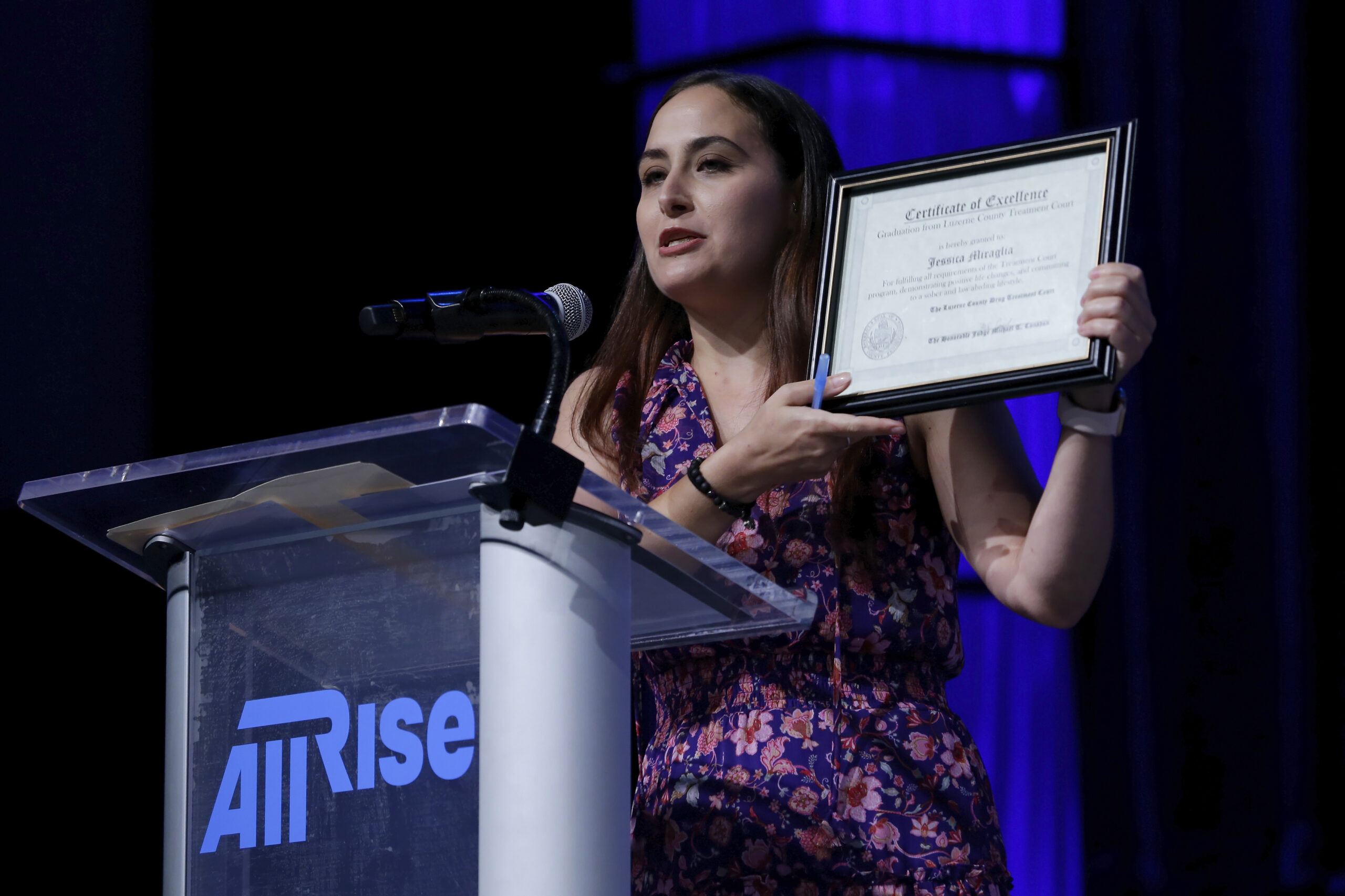
Examining Justice Interventions for Substance-Using People From Prearrest to Reentry
The second general session kicked off with the introduction of the newest All Rise division: the Center for Advancing Justice. All Rise Chief Development Officer Aaron Arnold began by making the strong case for looking at interventions beyond treatment courts to ensure that individuals throughout the system have access to treatment and support. “The Center for Advancing Justice will be developing, introducing, and assessing evidence-based practices to meet the needs of individuals with substance use and mental heath disorders,” he said. “In addition, it will serve as an incubator for new innovations.”
Center for Advancing Justice Director Dr. Jacqueline van Wormer provided additional context for the new division’s work: “We now have decades of research and understanding of how to effectively build, implement, and sustain the treatment court model; it is now time for us to move beyond the confines of treatment courts and to work to advance recovery across the system by uniting public health and public safety.”

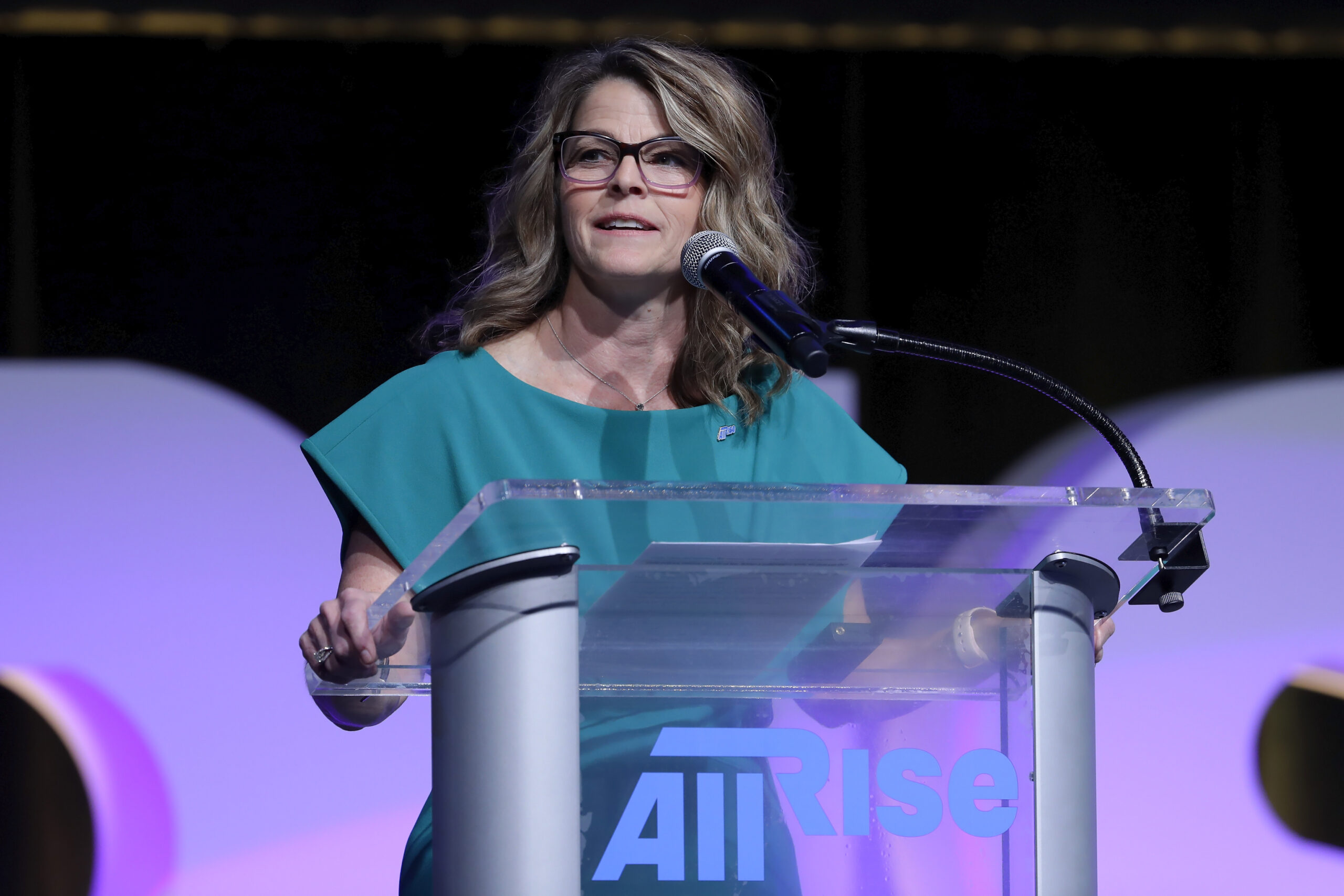
This approach was evident in the two panel discussions that followed, each representing successful intercepts at either end of the spectrum. First, Treatment Court Institute Director Vanessa Matthews spoke with Impaired Driving Solutions Project Director Julie Seitz and Duluth Police Department Peer Recovery Specialist Tim Innis. The panel highlighted Innis’s remarkable story of recovery and his role in providing crisis and recovery support for individuals impacted by substance use who have contact with the department.
Innis outlined a model for community engagement that puts public health first and creates multiple pathways to recovery. “There is no wrong way to come and see us,” he said. “[People] can self-refer to us. Police officers refer folks to us. Family members ask if we can check on their loved ones. And doing street outreach we get a lot of contacts.”
“I cannot emphasize enough how replicable this is in your communities,” added Seitz.
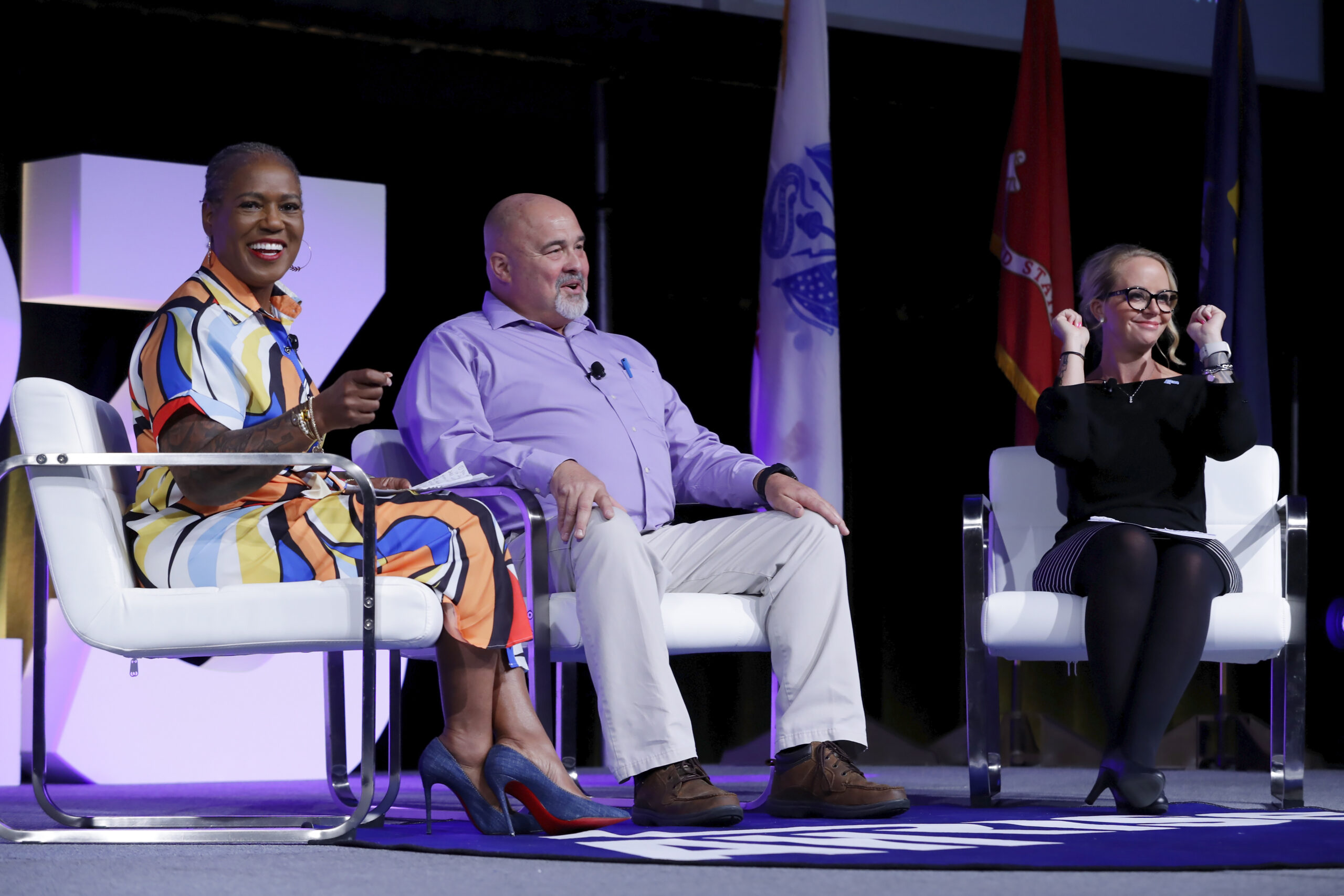
Turning focus to the reentry end of the spectrum, the session closed with an illuminating conversation moderated by clinical psychologist Carlos Quezada-Gomez and featuring California Department of Corrections Offender Mentor Certification Program founder Sol Irving and Developing Organizing Visions for Everyone Executive Director Cameron Clark. Both Irving and Clark were featured in the documentary “The 50” which screened at RISE23 as part of the RISE Film Festival, and spoke passionately about the value in providing treatment and mentoring to returning citizens.
Clark spoke about his own growth facilitated by the mentoring and trauma counseling he received while incarcerated, and the lessons he brings to his work with incarcerated individuals today. “A lot of times, all we see is the crime. But these people are also sons and fathers, sisters and mothers,” he said. “I got to a point where I realized we are not only dealing with alcohol and drugs, but we are also dealing with past trauma, mental health, all of these different things. When you approach a person and meet them at their level, that is where real change happens. Meet them on their level, and they start to open up. Once they are able to expose themselves, that’s where the healing starts.”

Combating Homelessness for the Justice-Involved and People With Substance Use Disorders
Housing insecurity is a significant issue facing many in the justice-involved population, and often a major inhibitor for recovery capital. The third RISE23 general session looked at this issue through a series of conversations that demonstrated actionable solutions. All Rise Director of Strategic Engagement Melissa Fitzgerald spoke with Cook County Circuit Court Judge Charles Burns and Assistant District Attorney Sarah Kaufman about their unique partnership with the Cook County Housing Authority to provide housing vouchers to participants and alumni. Judge Burns spoke about the challenge his program faced to ensure that participants and alumni had safe and stable places to live and how using housing vouchers has been transformative for building recovery capital.
Cook County treatment court alumni Johnny Washington reiterated this point with his own story. “I went from homelessness to owning my own apartment,” he said to cheers as he held up his keys for all to see. “Don’t be afraid to reach out and give us the help we need.”
Fitzgerald also spoke with founder and co-executive director of the Los Angeles County Community Action Network Pete White about his work to debunk misconceptions about homelessness and build effective housing programs. He spoke about the danger of only focusing on individuals and not also working to fix systemic barriers: “We must not look down on, we must sit across the table from people who are impacted. We must not turn away. It’s paramount that we move this work in a way that demands our participants, our clients, our neighbors, and our families get their fair share.”

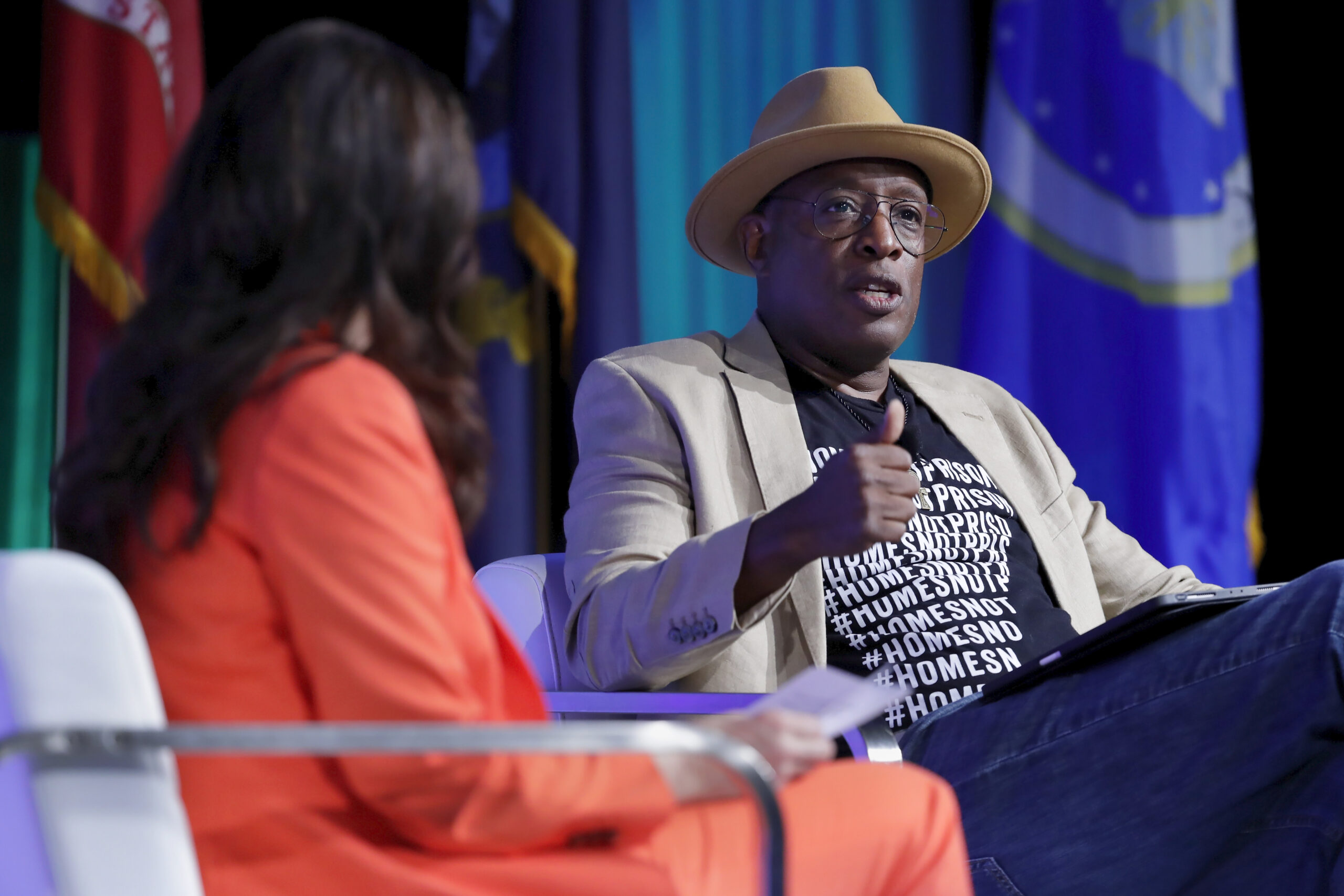
The session was brought to a close by author and founder of the Chasin Freedum Foundation Quawntay Adams who told his remarkable story, from childhood in Compton, California, to justice involvement, to published author, to freedom. Adams carried a message of hope and the incredible capacity of people to transcend their circumstances.
“All my life I realized I had been pursuing freedom the wrong way. So, I started the Chasin Freedum Foundation to help other young men from communities like mine to see different things,” he said. “If we can show them there is more out there, it allows them to find their meaning and purpose in life. When we can show people we can care about them, it encourages them to care about themselves.”

Including Children and Families in the Healing and Recovery Process
RISE23 came to an emotional close with National Association for Children of Addiction Senior Clinical Advisor Jerry Moe, who provided a stirring presentation on the impact of parental addiction and recovery on children. The session offered powerful testimony about the need to ensure that children receive appropriate support as they navigate the recovery process of a parent or caregiver. He highlighted resources available through Sesame Street in Communities to assist with difficult conversations and offered case studies from his own work as a national director of children’s programs with Hazelden Betty Ford. “Let’s break that intergenerational cycle of substance use disorders, mental health disorders, trauma, and incarceration,” he said. “Let’s continue to save lives and reunite families and make our communities healthier and safer. Remember, together we are stronger.”
Indeed, together, we All Rise.
